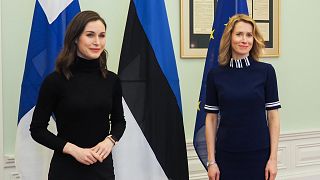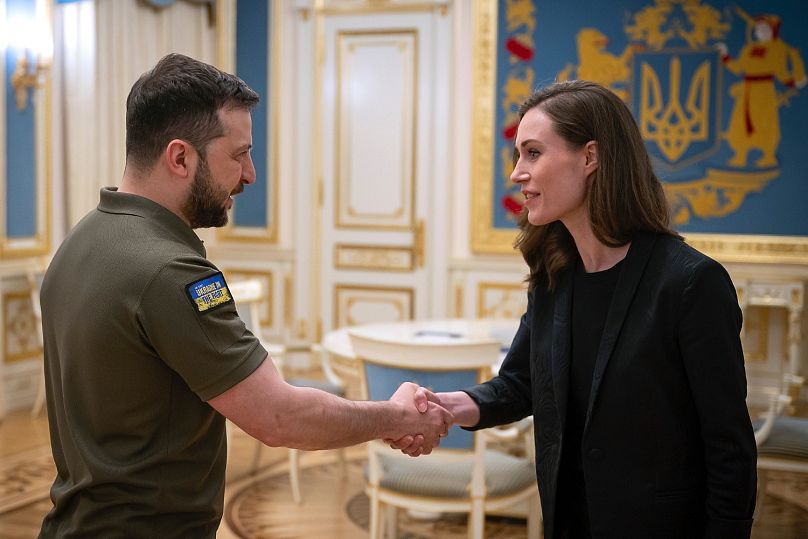
The leaders of Estonia and Finland want other EU countries to stop issuing tourist visas to Russian citizens, saying they should not be able to travel to Europe on holiday while the Kremlin carries out a devastating war in Ukraine.
Estonian Prime Minister Kaja Kallas wrote on Tuesday that “visiting Europe is a privilege, not a human right” and that it is “time to end tourism from Russia now”.
In response, former Russian President Dmitry Medvedev compared Kallas to a “Nazi”.
A day earlier, her Finnish counterpart Sanna Marin said in a TV interview that „it is not right that while Russia is waging an aggressive, brutal war of aggression in Europe, Russians can live a normal life, travel in Europe, be tourists.”
Finnish Foreign Minister Pekka Haavisto told Euronews recently that the government would move to limit the number of tourist visas issued to Russians, but hoped the EU would take a common stand on the issue and stop granting new visas completely.
Estonia and Finland both border Russia and are members of the European Union, which banned air travel from Russia after it invaded Ukraine. The last remaining passenger rail link between Russia and the EU ended in March when the high-speed service between St. Petersburg and the Finnish capital Helsinki stopped running.
However, Russians can still travel by land to both Finland and Estonia and are apparently then taking flights to other European destinations.
Finnish media recently reported there was a brisk business for car hire between St. Petersburg to and from the airports in Helsinki, and Lappeenranta in southeast Finland – which have direct connections to numerous European destinations.
Russia’s second-largest city is about 300 kilometres from the Finnish capital.
Visas issued by Finland are valid across most of Europe’s travel zone, known as the Schengen area, which is made up of 26 countries: 22 EU nations plus Iceland, Liechtenstein, Norway and Switzerland. Normally, people and goods move freely between these countries without border checks.
Some EU countries no longer issue visas to Russians, including Latvia, which made that move this month because of the war.
The issue of visas for Russians will likely be on the agenda when EU foreign ministers meet in the Czech Republic at the end of August for their annual ‘Gymnich’ summit.
“I would believe that in future European Council meetings, this issue will come up even more strongly. My personal position is that tourism should be restricted,” Sanna Marin told a Finnish broadcaster.
During the coronavirus pandemic, Helsinki and Moscow temporarily shut down the border, putting an abrupt stop to visits to Finland by nearly two million Russian tourists who gave a boost to the local economy each year.
Finland shares a 1,340-kilometer land border with Russia, complete with several crossing points, in what is one of the European Union’s longest external borders.
Kremlin criticises Ukraine’s call to ban Russian tourists
Meanwhile, the Kremlin has strongly criticised a Ukrainian call for EU countries to ban Russian tourists.
Moscow said a call by President Volodymyr Zelenskyy for Western countries to close their borders to Russian visitors to punish the country for its offensive against Ukraine was „irrational”.
In an interview with the Washington Post this week, Zelenskyy said he believes that „the most important sanctions are to close the borders because the Russians are in the process of seizing territory from someone else”.
Whatever their political views, Russians must „live in their own world until they change their philosophy”, he added.
„The irrationality of such reasoning goes beyond all limits and can only provoke a negative reaction,” Kremlin spokesman Dmitry Peskov said on Tuesday.
„Any attempt to isolate the Russians or Russia has no chance of succeeding,” he added.

